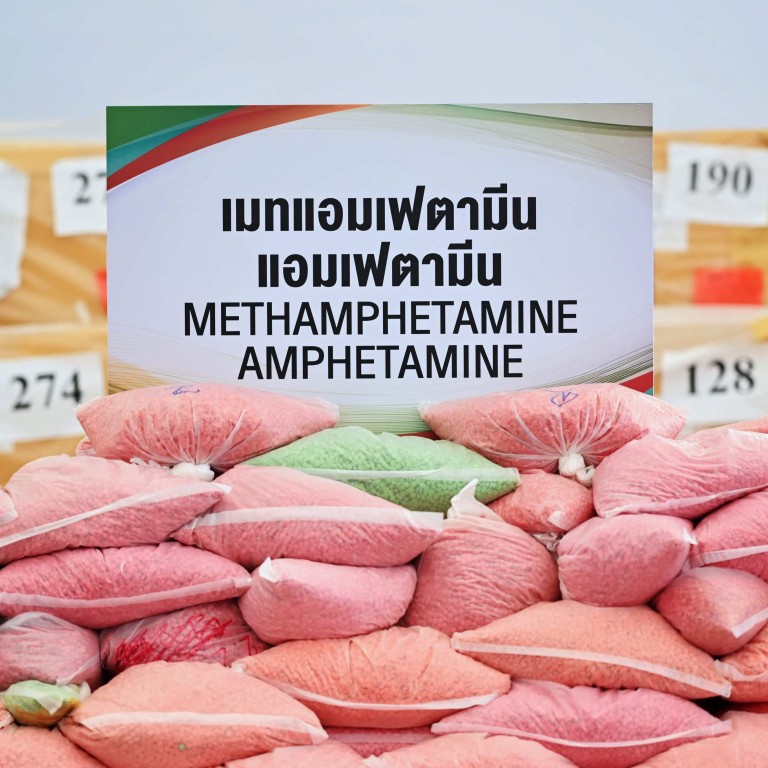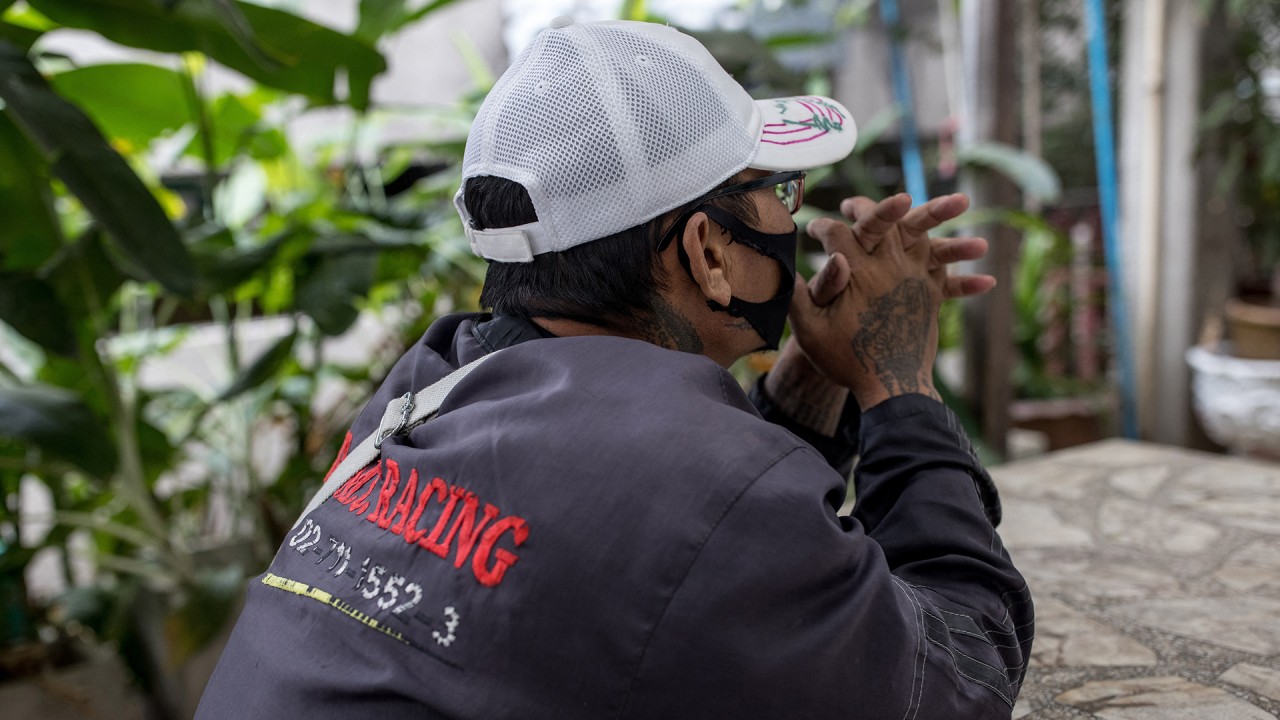
Covid-19 grounded planes, so drug traffickers in Southeast Asia took to the seas: new report
- A record 170 tonnes of methamphetamine were seized in the region last year, up 19 per cent from 2019, despite coronavirus travel restrictions
- According to the United Nations Office on Drugs and Crime, 71 per cent of the drugs came from Cambodia, Laos, Thailand, Myanmar and Vietnam
“All these countries in the lower Mekong, except Vietnam, seized record quantities of methamphetamine despite Covid-19,” he said.
The report, titled “Synthetic Drugs in East and Southeast Asia: latest developments and challenges 2021”, said that while Thailand once again recorded the largest volume of methamphetamine seized in East and Southeast Asia, seizures in Myanmar also increased markedly.
Thai methamphetamine smugglers avoid death penalty in Indonesia’s Bali
However, Sim said the pandemic’s impact on the drug trade was short lived as organised crime quickly adapted to new border controls, which led to a rebound in supplies in late May last year. However, there had been some changes in approach.
Since the onset of Covid-19, he said, Malaysia had reported an increase in attempts by traffickers to use maritime routes, with a record 2,118kg of crystal meth seized off the coast of Penang state. Both Indonesia and the Philippines saw fewer maritime seizures, however.
Wholesale prices of crystal meth have also fallen to record lows, with prices in Malaysia decreasing by one-third over the past five years, while in Cambodia they have fallen by one-sixth since 2014. “The cost of making this drug is getting cheaper [because of] the constant and increased flows of chemicals into manufacturing sites,” Sim said.
The report concluded that organised crime in the region has been diversifying its sources of synthetic drugs away from Myanmar’s Shan State, where they were once predominantly produced.
During the Thursday briefing, UNODC regional representative Jeremy Douglas said the 170 tonnes of methamphetamine seized in Southeast Asia would be similar to the amount found by the authorities in North America, one of the world’s largest markets for the drug. However, he said, with Southeast Asia being less equipped in terms of intelligence and interception capacity, last year’s seizure was probably just the tip of the iceberg.
Douglas said that even though the drug trade had for years been expanding in East and Southeast Asia, there was still potential for the market to grow given the rising rate of per capita income in the region. “When you look at East and Southeast Asia, they continue to prosper and the economy flourishes, so especially post-Covid-19, there’s potential for growth,” he said.
When asked whether the economic downturn induced by Covid-19 would affect the drug trade, Douglas said countries with governance and economic challenges had populations that were at risk of becoming involved with criminality, while these nations could also be targeted by gangs.
However, he said, as synthetic drugs required less manpower to manufacture – unlike heroin or opium, which involve farming and employing locals – criminal groups could ramp up production to make money without having to involve a lot of people.
China joins forces with Mekong nations in war on Asia’s biggest methamphetamine cartel
Paisith Sungkahapong, deputy secretary-general of Thailand’s Office of the Narcotics Control Board, said since air travelling had been limited due to the pandemic, traffickers were using new techniques such as exploiting social media to trade illicit substances.
The authorities have intercepted various drug shipments from Thailand over the past month, including a Thai national who was arrested after attempting to smuggle 134,000 doses of methamphetamine into South Korea, the Yonhap news agency reported on May 31.
Hong Kong Customs seized 23.5kg of what is suspected to be heroin, with an estimated market value of about HK$29 million (US$3.7 million), on May 27. The substance was found inside the false compartments of 13 water filters and nine coffee machines shipped from Thailand.
The Australian police last month reported the discovery of 316kg of methamphetamine, worth some US$76.9 million, hidden inside barbecue grills and water heaters shipped from Thailand that arrived at a Sydney port in late April.


